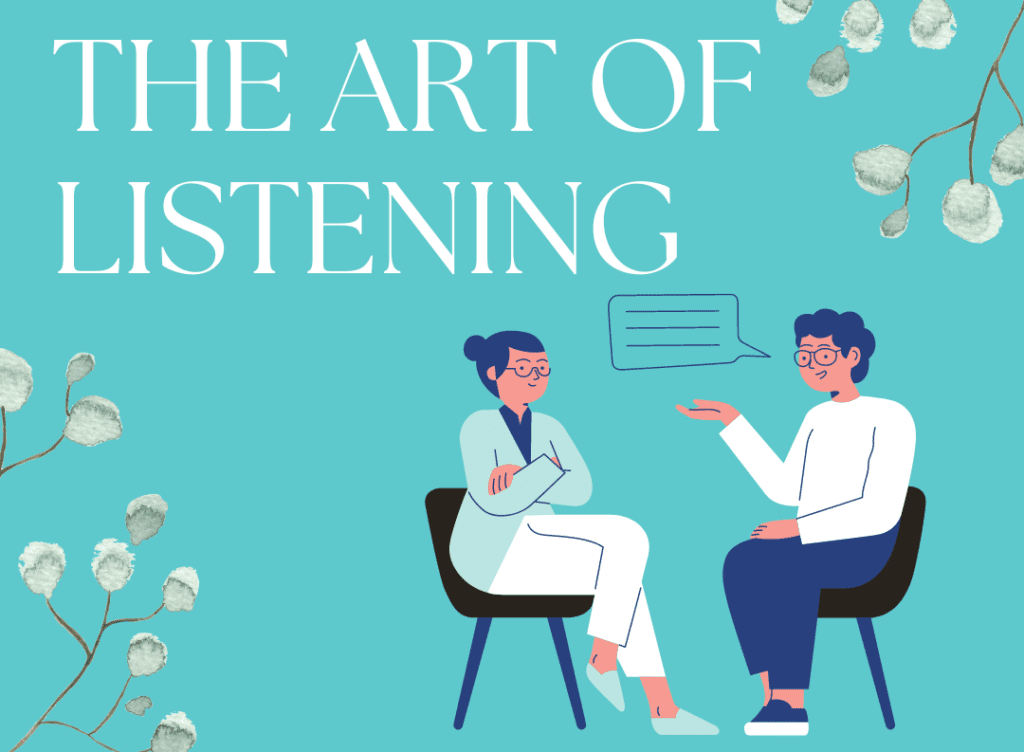
Have you ever thought about how much time you spend talking versus listening? In our hustle-bustle world, listening seems like a rare commodity, yet it’s a powerful tool to forge connections, build trust, and influence those around us. This article dives deep into why and how listening can transform your interactions and relationships, both personal and professional.
The Power of Listening
Why Listening Is an Art
Listening, contrary to popular belief, is not a passive activity but an active art. It’s about engaging fully with the speaker, not just waiting for your turn to speak. The art lies in understanding perspectives, decoding emotions, and grasping nuances.
The Impact of Active Listening
Active listening can dismantle barriers and open doors in ways you’ve never anticipated. It can lead to better problem-solving, enhance your persuasion skills, and even elevate your charisma. But what makes it so powerful?
The Art of Becoming a Good Listener
The Basics of Effective Listening
Effective listening requires more than just hearing words; it involves body language, feedback, and a genuine interest in understanding the other person’s point of view.
Mindful Listening Techniques
Mindful listening is about being present and fully engaging with the moment without judgment. Techniques include focusing on the speaker without distraction and practicing empathy.
Encouraging Dialogue Through Listening
Creating a safe space for dialogue involves not just hearing words but also reading between the lines and encouraging others to open up through open-ended questions and empathetic responses.
Overcoming Common Listening Barriers
Distractions, preconceptions, and emotional reactions often hamper genuine listening. Recognizing and overcoming these barriers is crucial for meaningful communication.
Listening in Different Contexts
In Personal Relationships
Listening builds deeper connections and understanding in personal relationships, paving the way for more meaningful interactions and stronger bonds.
In the Workplace
In professional settings, effective listening can lead to better teamwork, leadership, and conflict resolution, making it a key skill for success.
On the Global Stage
At a larger scale, listening plays a critical role in diplomacy and international relations, where understanding nuanced perspectives can aid in solving complex issues.
The Psychology Behind Listening
The Link Between Listening and Empathy
Empathy, the ability to understand and share the feelings of others, is directly linked to how well we listen. By truly listening, we step into the shoes of others, fostering deeper connections.
Listening as a Pathway to Influence
Influence is not just about persuasive speaking but also about how well you listen. By understanding others’ needs and concerns, you can better tailor your messages and actions to achieve desired outcomes.
Practical Tips for Enhancing Listening Skills
Everyday Exercises for Better Listening
From mindful meditation to active listening exercises in daily conversations, there are many ways to enhance your listening skills. Practice, patience, and a genuine interest in others are key.
Conclusion
Listening is indeed a superpower in building rapport, trust, and influence. By honing this skill, not only can you become a better friend, colleague, and leader, but you also open yourself up to a world of perspectives, enriching your life and the lives of those around you.
More information to help you Listen.
FAQs
- How do I practice active listening?
- Can listening skills be improved at any age?
- What are some common listening mistakes?
- How can I become a better listener in my relationship?
- Why do some people find it hard to listen?
Listening isn’t just about silence; it’s about engagement, understanding, and connection. In a world that’s constantly talking, those who master the art of listening stand out as influential leaders and cherished friends. Start your journey today and unlock the full potential of your relationships.